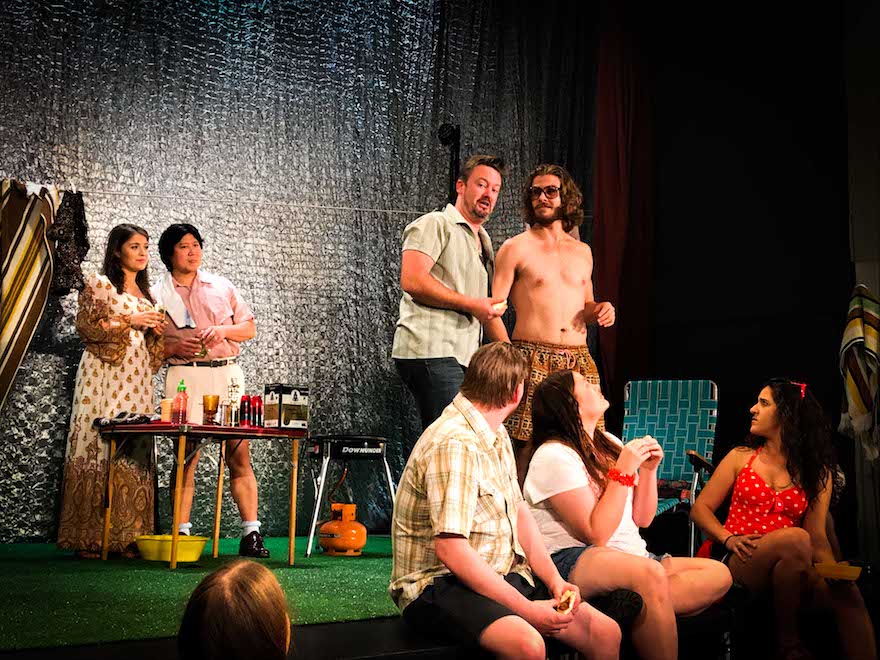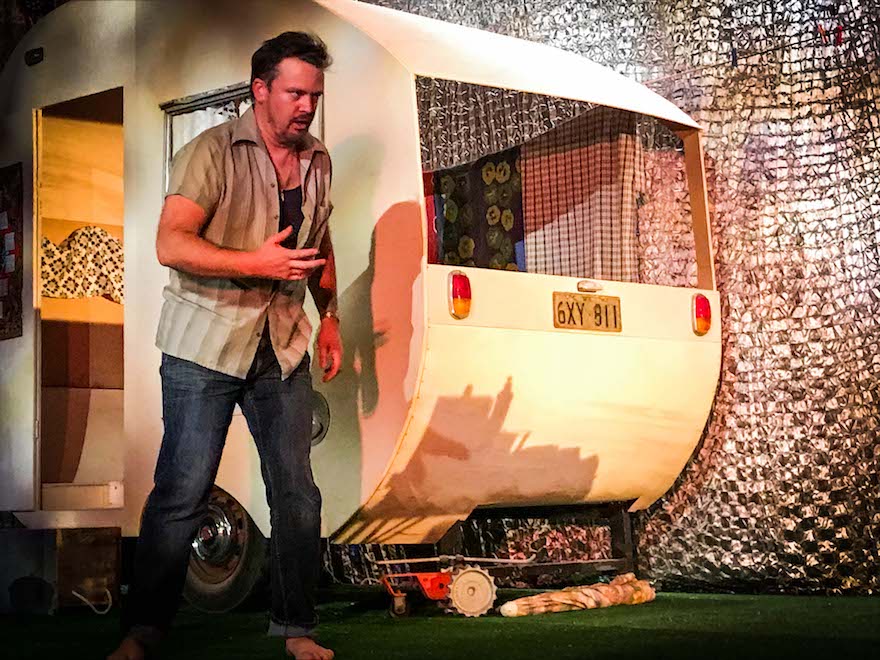Review: Freeze Frame Opera, Pagliacci ·
Camelot Theatre, Mosman Park, 9 June ·
Reviewed by Tiffany Ha ·
There’s been a steadily growing buzz around Freeze Frame Opera since its launch in 2016. According to its website bio, the small, cutting-edge company is a not-for-profit organisation whose mission is to showcase the traditional genre in new and exciting ways, to make opera “accessible, affordable and appealing”.
I am in full support of this endeavour. Throughout my many years of music study – and well into my twenties – I never connected with opera. It felt alienating. I was bewildered by the female characters, whose on-stage activities were limited to pining, seducing, being captured, or being punished*. This, combined with the substantial investments required just to attend the darn thing (time, money, clothes that aren’t jeans), gave me the belief that opera is not for me.
On Saturday night, however, Freeze Frame Opera (FFO) made me reconsider my stance on traditional opera, with its gritty and boldly-stylised interpretation of Ruggero Leoncavallo’s Pagliacci. The tragicomic opera premiered in Milan in 1892; today it is one of the most-performed operas in the repertory. The story centres on a troupe of travelling clowns who, in FFO’s production, are characterised as general actors and performers – there is not a clown-suit in sight.

In fact, all the visual elements of the production – the set, costuming, props, the overall colour-scheme – are far removed from what you’d expect from traditional opera. Instead of a nineteenth-century Italian village, we find ourselves in Boganville, Australia, 1974, in a groovy caravan park complete with astroturf and garish portable outdoor furniture. In the opening scene we see two families (Canio’s and Beppe’s) enjoying a summer holiday together: one of the boys saunters in with his billy and camping swag; some teenagers trickle in, wearing bathers and boardies, hair still damp from the beach; the dads are manning the Weber, handing out sausages wrapped in white bread; the kids are running and playing; the women are dressed in bright paisley frocks, reading magazines and smoking cigarettes.
The realism of FFO’s Pagliacci was delectable. And it never felt forced or ad-hoc, because Leoncavallo wrote the opera in the verismo style – a post-Romantic operatic tradition that focuses on the experiences of ordinary human beings, as opposed to those of gods, kings and the aristocracy. At times, the performance felt less like opera, and more like soap opera.
That’s by no means a criticism of the cast’s acting and singing, though. The performers could just as easily have been on larger stages in fancier opera houses. Michael Lewis added thoughtfulness and depth to the character of Tonio – a creepy old janitor who meddles in everyone else’s affairs, grumbling in baritone asides. Tenor Paul O’Neill was powerfully convincing as Canio (the hero, and “prince of clowns”); I nearly cried during his aria about the pain of being betrayed by his wife, and the further pain of having to hide it in order to perform and make others happy.

Soprano Harriet O’Shannessy (who played Nedda, Canio’s wife) was the true star of the show, however. I imagine the take-away from Leoncavallo’s original Pagliacci was that Nedda got what was coming to her. But in FFO’s production, the character is charming, likeable, multi-dimensional and real. O’Shannessy’s Nedda ranged from charming, sassy and gutsy to irreverent, fearful and sullen – impressive ground to cover in such a short performance. We could see why Nedda had many admirers, including her secret lover, Silvia**, who was so well-played by mezzo-soprano Caitlin Cassidy that there was never any hint that her role had originally been written for a man.
Staging operas in smaller venues and with tighter budgets means there’s often no room for an orchestra. Fortunately, FFO’s musical director, Tommaso Pollio, is an accomplished pianist. He played the orchestral reduction of the original score on a grand piano, in front of the stage and off to the side. At times, the piano accompaniment set an intimate, heady mood, as if we were in a late-night cabaret show at Fringe World. Other times, the piano was massive and exclamatory, filling up the space and underscoring the drama as well as an entire orchestra could. It was also nice to be able to see Pollio; traditionally the orchestra is unseen, relegated to the pit underneath the stage.
FFO’s Pagliacci is showing at the Camelot Theatre until this Sunday, but – unfortunately for those who don’t have tickets – it’s completely sold out. Instead, you can keep up to date with future Freeze Frame Opera events by visiting their website. And yes, you can wear jeans; you can even drink beer.
*This applies only to the important female characters. The unimportant ones are relegated to prancing, gossipping, admonishing, and general chorus-commentary. I still hold hope that there’s something in the opera canon that might pass the Bechdel test; if you know of one, please comment below!
**Is it just me, or is 2018 the year of #lesbiansinopera?
Pictured top: Jun Zhang as Beppe and Harriet O’Shannessy as Nedda. Photo: Robbie Harrold.
Like what you're reading? Support Seesaw.






